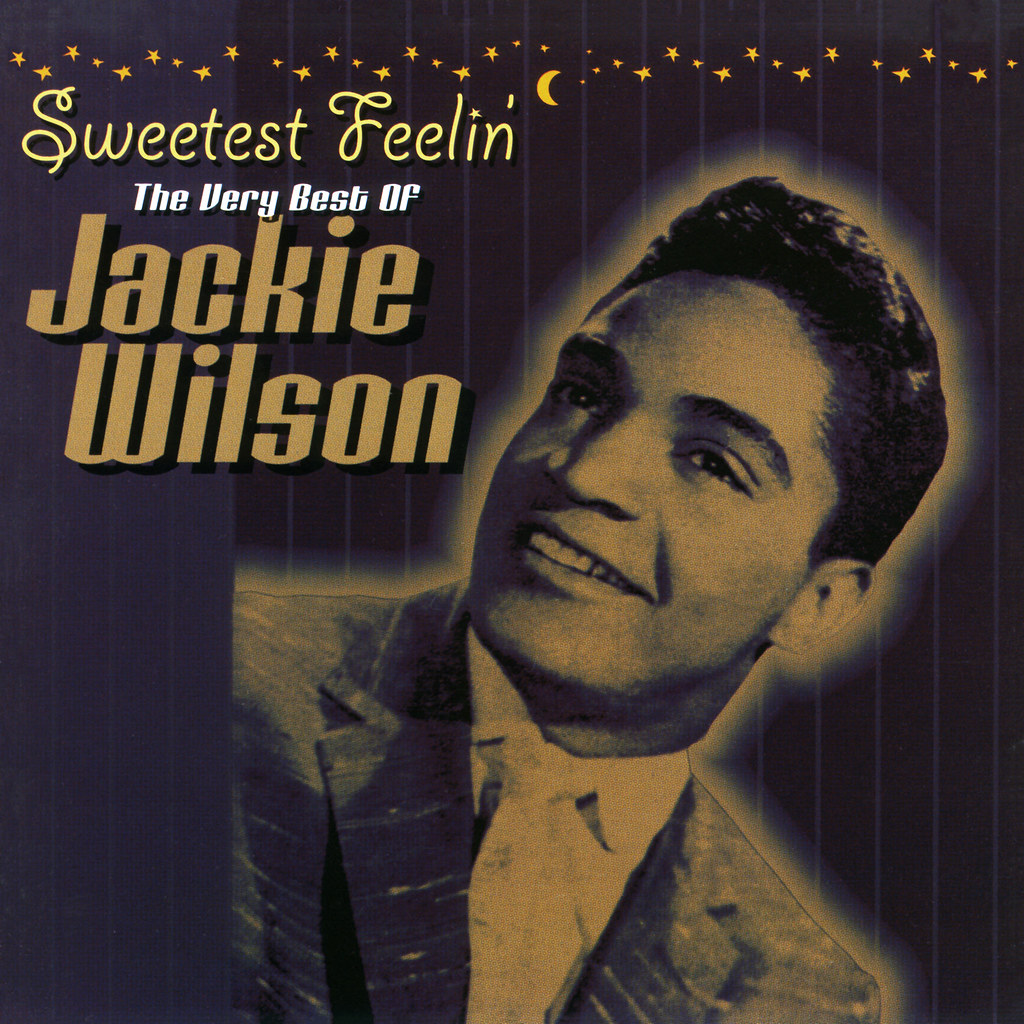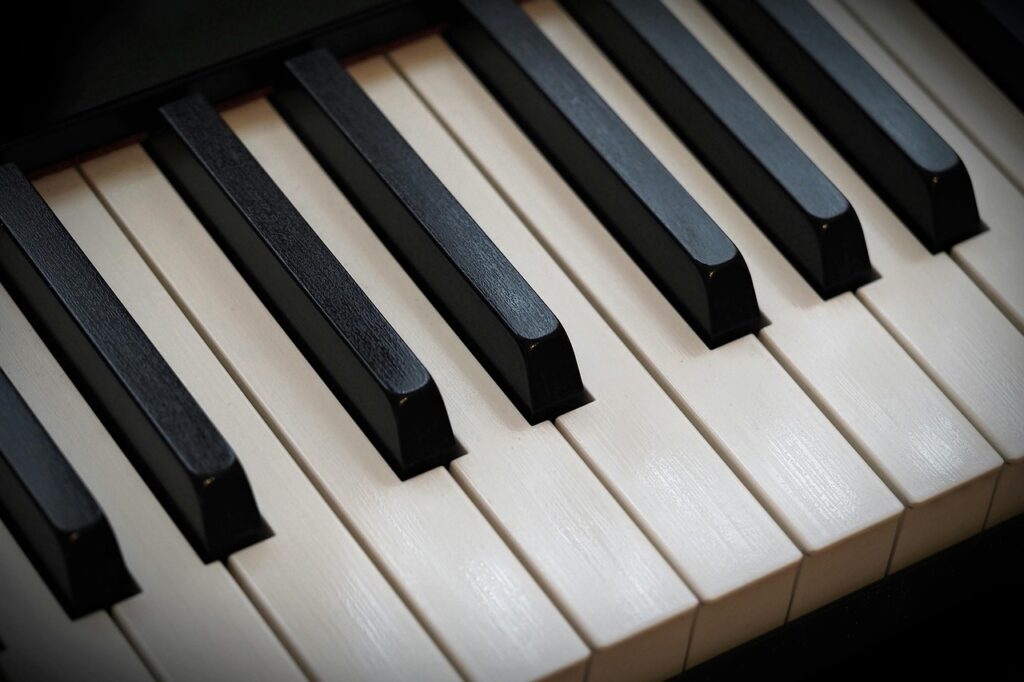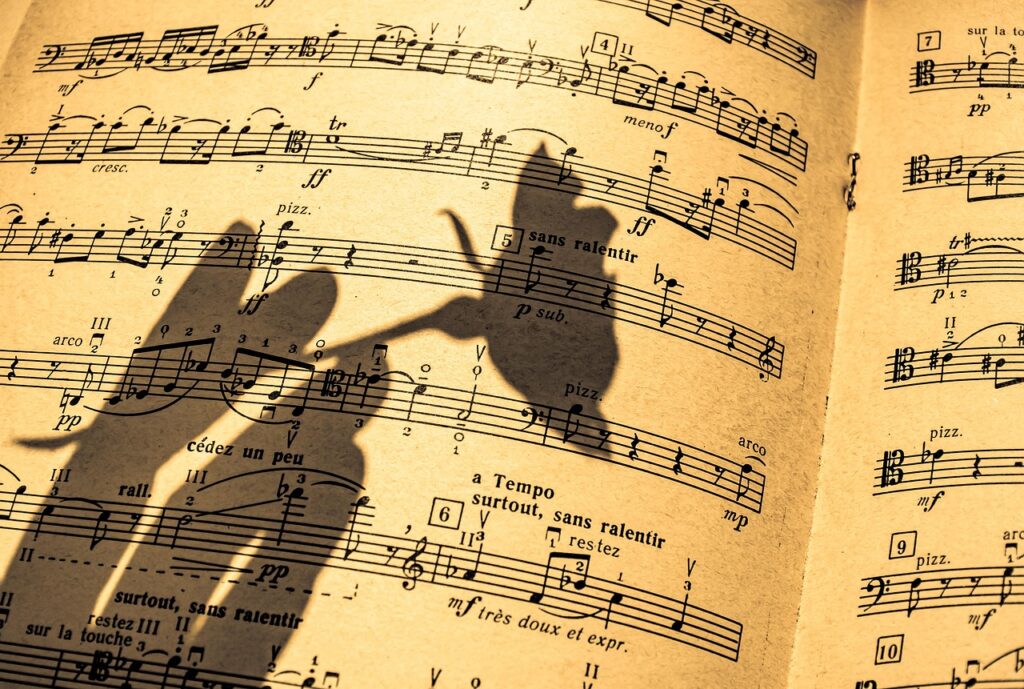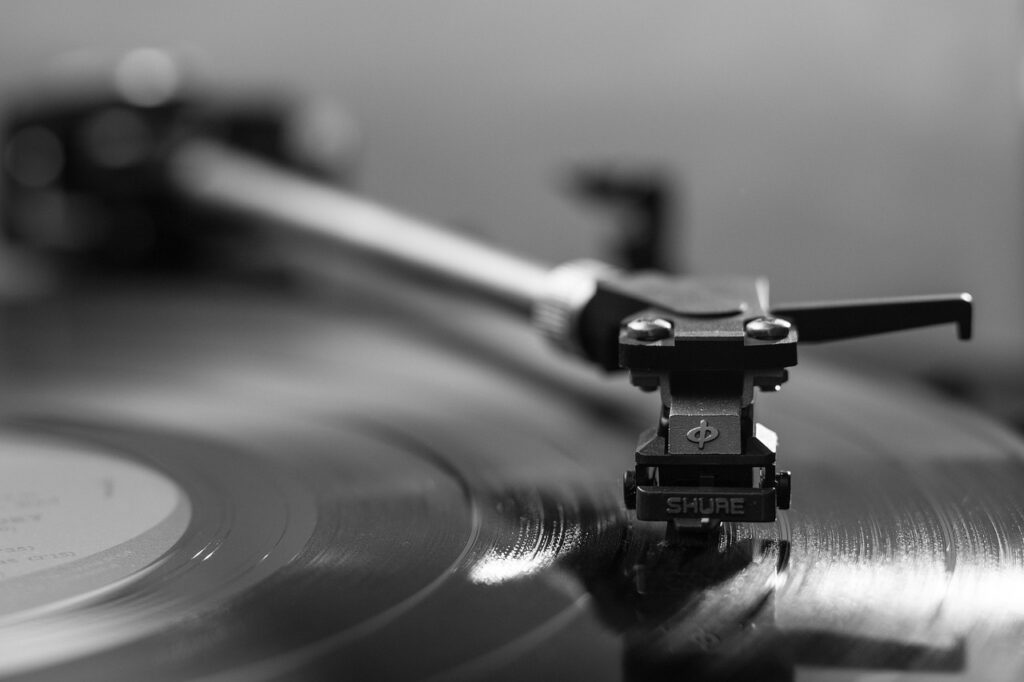
The stage would ignite the moment Jackie Wilson stepped into the spotlight, a whirlwind of energy, vocal prowess, and undeniable charisma that earned him the enduring moniker “Mr. Excitement.” Born Jack Leroy Wilson Jr. in the vibrant, music-rich city of Detroit, Michigan, on June 9, 1934, he was a performer who didn’t just sing songs; he embodied them, transforming simple melodies into breathtaking spectacles that captivated audiences across racial and generational divides. His journey from the gritty streets of Detroit to the pinnacle of musical stardom is a testament to raw talent, relentless drive, and a singular vision for performance that reshaped the landscape of American popular music.
Wilson possessed an appealing tenor voice that could soar with operatic grandeur or melt with tender vulnerability, a versatility that allowed him to effortlessly transition between rhythm-and-blues and mainstream pop charts. This ability to appeal to a broad audience was not merely a commercial strategy; it was an authentic expression of his wide-ranging musical sensibilities and his innate understanding of human emotion. He was a pioneer, forging a path for a generation of African American artists who would follow in his wake, demonstrating that artistic excellence and crossover success were not mutually exclusive but rather intertwined aspects of a truly impactful career.
To understand Jackie Wilson’s indelible mark, we must peel back the layers of his electrifying stage persona and delve into the formative experiences that shaped the man behind the legend. From his early struggles to his groundbreaking innovations, each chapter of his life contributed to the legend of an artist who lived with the same passionate intensity he brought to every performance. He was a force of nature, a singer whose influence continues to resonate, long after his premature departure from the stage of life.

1. **From Detroit’s Streets: The Genesis of a Star** Jack Leroy Wilson Jr.’s story began in Detroit, Michigan, a city renowned as a crucible of American music. His birth on June 9, 1934, placed him squarely within an era of burgeoning cultural shifts, where the sounds of gospel, blues, and burgeoning rhythm-and-blues were weaving a rich tapestry in the urban soundscape. It was within this vibrant, fertile ground that Wilson’s own musical sensibilities were first nurtured, even as other paths beckoned.
Jack Leroy Wilson Jr.’s story began in Detroit, Michigan, a city renowned as a crucible of American music. His birth on June 9, 1934, placed him squarely within an era of burgeoning cultural shifts, where the sounds of gospel, blues, and burgeoning rhythm-and-blues were weaving a rich tapestry in the urban soundscape. It was within this vibrant, fertile ground that Wilson’s own musical sensibilities were first nurtured, even as other paths beckoned.
His early exposure to music came through the deeply spiritual and expressive traditions of gospel music, a foundational influence that imbued his later secular performances with an almost divine fervor. This initial foray into singing honed his vocal control and emotional depth, giving him a powerful instrument that would later transcend genre boundaries. The earnestness and raw feeling inherent in gospel music would forever be a part of his artistic DNA, providing a bedrock for the electrifying shows he would eventually command.
Beyond the church and local performance halls, Detroit itself was a character in Wilson’s early narrative, a bustling industrial hub that fostered both hardship and opportunity. The city’s energy, its mix of cultures and sounds, provided a dynamic backdrop for a young man with ambition. It was this complex environment that shaped not just his voice, but his resilient spirit and the magnetic stage presence that would one day define “Mr. Excitement.”

2. **Gloves to Glamour: A Pivotal Choice**
Before the bright lights of the stage became his arena, Jackie Wilson found himself in a different kind of ring, pursuing a promising career as a Golden Gloves boxer. As a teenager, he displayed considerable talent and discipline in the sport, hinting at a physical prowess and competitive drive that would later translate into his dynamic stage movements. This period of his life speaks to a young man of diverse talents, capable of excelling in demanding physical pursuits as much as in the artistic.
However, destiny, or perhaps a mother’s concern, intervened. It was reportedly Wilson’s mother who implored him to step away from boxing, recognizing perhaps the inherent dangers or seeing a different, less perilous path for her son’s extraordinary gifts. This pivotal decision marked a significant turning point, redirecting his formidable energy and ambition from the boxing ring to the musical stage, setting the course for a legacy far removed from prize fights.
The discipline, agility, and sheer determination learned in the boxing world were not abandoned; rather, they were transmuted. The stage became his new ring, the microphone his weapon, and the audience his worthy opponent, to be won over with every soaring note and every electrifying move. This early choice underscored a pragmatic understanding of his potential and an openness to embracing new directions, a trait that would characterize his adaptability as an artist throughout his career.
3. **The Domino Effect: Stepping into the Spotlight**
Jackie Wilson’s professional music career truly began to coalesce in 1953 when he joined the celebrated vocal group Billy Ward and his Dominoes, sometimes referred to as Billy Ward and the Dominoes. This was no small feat; Wilson was brought in to fill the shoes of a prodigious talent, Clyde McPhatter, who had established the group as a major force in rhythm and blues. Taking on such a role immediately signaled Wilson’s burgeoning reputation and vocal capabilities.
His time with the Dominoes proved to be an invaluable apprenticeship, a crucible where he could refine his craft under the guidance of seasoned professionals. It offered him the platform to develop his stage presence, harmonize with other vocalists, and understand the intricate dynamics of group performance. This period was crucial in shaping him into the consummate entertainer he would become, teaching him the nuances of audience engagement and the power of collective artistry.
Stepping out of McPhatter’s shadow and into the lead vocal position was a challenge Wilson met with characteristic aplomb. He quickly established his own identity within the group, contributing to their continued success and preparing himself for the inevitable next step in his career. The experience provided him with a solid foundation, not only in vocal technique but also in the demanding life of a touring musician, laying the groundwork for his future solo endeavors.

4. **A Solo Voice Emerges: “Reet Petite” and Beyond**
By 1957, the burgeoning star power of Jackie Wilson could no longer be contained within a group setting. It was time for his voice, his energy, and his unique artistic vision to take center stage alone. He embarked on his solo career, a move that would ultimately catapult him into the pantheon of music legends. This was a bold step, but one that felt preordained for an artist of his caliber, ready to carve out his own distinct niche.
His very first solo single, “Reet Petite (The Finest Girl You Want to Meet),” released in 1957, was an immediate declaration of his singular style. The song, co-written by Berry Gordy Jr. (who would later found Motown Records), showcased Wilson’s vibrant vocal delivery and the infectious rhythm that would become hallmarks of his sound. It was an energetic opener, hinting at the electrifying performances that would soon become synonymous with his name.
While “Reet Petite” made a respectable impact, it was just the beginning of Wilson’s ascent. It served as a vital stepping stone, demonstrating his viability as a solo artist and earning him a growing following. The single, with its catchy melody and Wilson’s undeniable charm, signaled that a major new force had arrived on the American music scene, ready to redefine the boundaries of popular entertainment.
5. **The Breakthrough: “Lonely Teardrops” Sweeps the Nation**
The true watershed moment in Jackie Wilson’s solo career arrived in December 1958 with the release of “Lonely Teardrops.” This masterful track, an upbeat song of heartbreak, became his first No. 1 R&B hit, a monumental achievement that solidified his standing as a dominant force in the genre. Its irresistible melody, coupled with Wilson’s passionate and agile vocals, resonated deeply with audiences, capturing both their feet for dancing and their hearts for feeling.
What truly underscored the magnitude of “Lonely Teardrops” was its extraordinary crossover success. Not content to dominate the R&B charts, the song also soared into the Top 10 on the pop charts, breaking through racial barriers that often constrained African American artists of the era. This achievement was not just a personal triumph for Wilson; it was a significant cultural moment, demonstrating the universal appeal of his artistry and paving the way for greater integration in popular music.
The song’s enduring legacy lies in its perfect blend of sorrow and exuberance. Wilson’s ability to convey profound emotion while maintaining an uplifting tempo was a signature of his style, and “Lonely Teardrops” showcased this brilliantly. It was more than a hit; it was an anthem, a testament to his unique ability to connect with listeners on multiple levels, cementing his place as a true innovator and a beloved figure in American music.

6. **”Night”: A Touch of Opera on the Pop Charts**
Jackie Wilson’s artistic ambition and incredible vocal range were never more evident than with his 1960 hit, “Night.” This sophisticated track showcased a completely different facet of his talent, revealing his profound passion for opera and his willingness to infuse classical elements into popular music. It was a bold, unexpected move that further differentiated him from many of his contemporaries and highlighted his status as a truly unique performer.
“Night” was not merely inspired by opera; it was directly based on an aria from Camille Saint-Saens’ grand opera, *Samson and Delilah*. Wilson took this classical piece and, with his masterful interpretation, transformed it into something accessible and deeply moving for a mainstream audience. This willingness to bridge the gap between high art and popular culture demonstrated an intellectual curiosity and musical adventurousness that few artists of his time dared to explore.
The success of “Night” proved that audiences were receptive to Wilson’s expansive musical vision. It was a testament to his ability to elevate pop music, demonstrating that complexity and artistic depth could coexist with commercial appeal. This particular hit not only expanded his repertoire but also deepened the public’s appreciation for his extraordinary vocal gifts, cementing his reputation as an artist who refused to be pigeonholed.
Read more about: The Perfect Chemistry: 14 On-Screen Duos So Electrifying, They Made You Forget What You Were Even Watching!

7. **”Doggin’ Around”: Mastering the Ballad**
In the very same year that Jackie Wilson showcased his operatic leanings with “Night,” he simultaneously demonstrated his mastery of another distinct musical form: the rhythm-and-blues ballad. “Doggin’ Around,” released in 1960, quickly ascended to the top of the R&B charts, proving Wilson’s remarkable versatility and his ability to excel across a diverse spectrum of musical styles. It was a powerful reminder that “Mr. Excitement” was also a storyteller of heartbreak and longing.
This hit solidified Wilson’s standing not just as a dynamic showman, but also as a profoundly emotive vocalist capable of conveying deep sentiment with exquisite control and feeling. His interpretation of “Doggin’ Around” was nuanced and soulful, allowing his tenor voice to explore the emotional complexities of the lyrics. It was a performance that spoke directly to the heart, demonstrating his profound connection to the raw essence of R&B.
The consistent success of singles like “Doggin’ Around” underlined Jackie Wilson’s formidable presence on the charts. He wasn’t a one-hit wonder; he was a consistent hit-maker whose ability to alternate between uptempo dance numbers and soulful ballads kept his career vibrant and his audience captivated. This sustained run of chart success in the early 1960s cemented his position as one of the most important and influential voices of his generation.
8. **”Baby Workout”: Igniting the Dance Floor**
As the 1960s progressed, Jackie Wilson continued to solidify his reputation as a master of energetic, crowd-pleasing anthems. His 1963 release, “Baby Workout,” was a quintessential example of his ability to fuse powerful vocals with an irresistible beat, ensuring that listeners were not just entertained but compelled to move. This track quickly became another R&B chart-topper, further proving his enduring appeal and his knack for creating timeless dance music.
“Baby Workout” was more than just a song; it was an invitation to the dance floor, a vibrant showcase for the kind of thrilling physical performance that defined Wilson’s live shows. The song’s infectious energy and driving rhythm perfectly complemented his reputation as “Mr. Excitement,” demonstrating how his recorded music could capture the dynamism of his stage presence. It was a track designed to get bodies moving, and it succeeded wildly.
The success of “Baby Workout” wasn’t just about commercial achievement; it was about connecting with the zeitgeist of a rapidly evolving musical landscape. Wilson proved he could remain relevant and vital, continuing to deliver hits that defined the sound of the era while maintaining his unique artistic integrity. It stood as a powerful testament to his adaptability and his unwavering ability to deliver music that both entertained and endured, a vibrant capstone to his initial decade of solo stardom.
9. **The Anthem of Ascent: ‘(Your Love Keeps Lifting Me) Higher and Higher’**
As the 1960s unfolded, Jackie Wilson continued to evolve, demonstrating an uncanny ability to stay attuned to the changing tides of popular music while retaining his signature flair. His 1967 release, ‘(Your Love Keeps Lifting Me) Higher and Higher,’ stands as a triumphant capstone to his string of chart successes, a vibrant explosion of soul and joy that would become his last major hit. It wasn’t just a song; it was a testament to his enduring power to uplift and inspire, a powerful declaration of love and exhilaration delivered with his characteristic vocal brilliance.
This track, with its infectious beat and soaring melody, perfectly encapsulated Wilson’s electrifying stage presence and his unparalleled vocal agility. It showcased a voice capable of effortless transitions from raw power to delicate falsetto, all imbued with an irresistible energy that made it an instant classic. The song’s universal appeal transcended genres, firmly planting it in the collective consciousness as a definitive piece of American music history, a true emblem of soul.
Indeed, ‘(Your Love Keeps Lifting Me) Higher and Higher’ became more than just a hit; it was a cultural touchstone, cementing Wilson’s legacy as an artist who could consistently deliver unforgettable performances. Its vibrant spirit and undeniable charisma served as a fitting zenith for a career marked by relentless innovation and unwavering showmanship, leaving audiences with an enduring sense of his boundless talent and passion.
10. **The Unforeseen Collapse: A Star Falls, Silence Descends**
The stage, for Jackie Wilson, had always been a sanctuary, a place where he could unleash the full force of his prodigious talent and connect with audiences on a visceral level. Yet, on September 29, 1975, this sacred space tragically became the scene of his undoing. While performing his breakthrough hit, ‘Lonely Teardrops,’ at a New Jersey nightclub, the very song that catapulted him to superstardom became the soundtrack to his sudden, devastating collapse.
The vibrant energy that defined ‘Mr. Excitement’ abruptly flickered. He suffered a heart attack, though some reports suggested it was a stroke, an unforeseen and brutal punctuation mark to a career built on unstoppable motion. The audience, accustomed to his theatrical swoons and dramatic gestures, initially mistook his fall for another dazzling move, a testament to how deeply his stage persona was ingrained in their minds. The reality, however, was far more grim and irreversible.
From that moment, the whirlwind performer was silenced. The collapse marked not just the end of a performance, but the precipice of a protracted and heartbreaking struggle. The stage lights dimmed on one of music’s most dynamic figures, ushering in a dark and uncertain chapter that no one could have predicted, transforming the vibrant entertainer into a figure of profound sorrow and concern.

11. **Eight Years of Silence: A Coma’s Cruel Grip**
The immediate aftermath of Jackie Wilson’s collapse was a desperate race against time, but the damage was irreversible. He slipped into a coma, a profound state of unconsciousness from which he would tragically never recover. The man who had once commanded stages with operatic flair and explosive dance moves was now confined to an existence defined by stillness and silence, a cruel irony for someone synonymous with movement and sound.
By 1977, two years after the devastating incident, Wilson was transferred to a retirement community in New Jersey. Here, he required constant, intensive care, a stark and somber contrast to the dazzling spotlight he had inhabited for decades. His once vibrant life, filled with travel, performances, and the adoration of millions, had been reduced to the quiet, unchanging routine of institutional living, far from the roar of the crowd.
For eight long years, Jackie Wilson remained in this vegetative state, a testament to the devastating toll his health crisis had taken. His body persisted, but the consciousness, the ‘Mr. Excitement’ that had so defined him, lay dormant. It was a prolonged and agonizing period, not only for him but for his family, friends, and legions of fans who held onto hope, however slim, for a miracle that would never come.
12. **A Family Divided: The Guardianship Battle**
Even as Jackie Wilson lay incapacitated, a somber and distressing chapter unfolded within his family, highlighting the complexities and heartaches that can arise in the wake of such a tragedy. In 1978, a year after he had been moved to the retirement community, members of his family initiated a court battle over his guardianship, a testament to the difficult decisions and profound responsibilities that arose from his health crisis.
The legal dispute pitted his second wife, Harlean (Harris) Wilson, against his son, Tony Wilson, who hailed from Jackie’s first marriage to Freda Hood. The situation was further complicated by the fact that Harlean and Jackie, who had wed in 1967, had been estranged for some time prior to his catastrophic collapse in 1975. This estrangement added a poignant layer of complexity to the already sensitive proceedings, as both sides sought to act in what they believed were his best interests.
Ultimately, the court ruled in favor of Harlean Wilson, entrusting her with the guardianship of the incapacitated musician. This resolution, while providing legal clarity, could not mend the emotional fractures within the family, nor could it diminish the profound sorrow of their patriarch’s condition. It was a difficult public ordeal, a stark reminder of the personal cost beneath the glittering facade of stardom.
13. **The Final Curtain: Jackie Wilson’s Peaceful Passing**
After eight agonizing years in a coma, the inevitable end finally arrived for Jackie Wilson. On January 21, 1984, in a hospital in Mount Holly, New Jersey, the music legend passed away, bringing a quiet conclusion to a life that had once been anything but. He was only 49 years old, a tragically young age for an artist whose impact felt timeless and whose potential had seemed limitless.
His death marked the true closing of an era, silencing one of the most powerful and influential voices in rhythm-and-blues and pop music. While his active career had been cut short by the on-stage collapse, his passing solidified the sense of loss, transforming the lingering hope of recovery into a profound finality. The world mourned not just a singer, but a performer whose energy and innovation had reshaped the musical landscape.
The news of his death resonated deeply within the industry and among his vast fanbase. It was a somber moment of reflection on a career of electrifying highs and an ending of heart-wrenching lows. Jackie Wilson’s final exit from the stage of life, though quiet, underscored the dramatic trajectory of his existence and left an enduring void in the heart of American music.

14. **Immortalized: A Place Among Legends**
Though his life was tragically cut short, Jackie Wilson’s profound impact on music could not be contained by mortality. Just three years after his passing, his unparalleled contributions were formally recognized when he was inducted into the Rock and Roll Hall of Fame in 1987. This prestigious honor cemented his rightful place among the pantheon of music’s greatest pioneers and innovators.
The induction was more than just an award; it was a powerful affirmation of his enduring legacy, a testament to how his artistry had shaped the very fabric of popular music. It celebrated not only his chart-topping hits but also his groundbreaking stage presence, his vocal mastery, and his role in paving the way for a generation of performers. His name, now etched in the Hall of Fame, serves as a permanent beacon for his genius.
This posthumous recognition underscored the fact that true artistry transcends time. Even in his absence, Wilson continued to inspire and influence, and his induction served as a powerful reminder of the electrifying power he wield wielded during his active years. It was a fitting, if belated, tribute to ‘Mr. Excitement,’ ensuring that his star would continue to shine brightly for generations to come.

15. **An Enduring Echo: His Influence on Generations**
Jackie Wilson’s legacy, far from fading with his physical departure, continued to resonate and expand, becoming an indelible part of the musical DNA of successive generations. He is widely credited with influencing a remarkable roster of artists, including iconic figures like Prince, Michael Jackson, and Elvis Presley, a testament to the profound and multifaceted nature of his artistry.
His dynamic stage presence, a mesmerizing blend of athleticism and raw emotion, became a blueprint for performers striving to captivate an audience beyond mere singing. The acrobatic moves, the vocal gymnastics, and the sheer charisma that earned him the ‘Mr. Excitement’ moniker were meticulously studied and subtly woven into the acts of those who followed, demonstrating his pioneering role in live performance.
Moreover, his incredible vocal range and his seamless ability to bridge the gap between rhythm-and-blues and mainstream pop charts demonstrated a commercial and artistic versatility that inspired many. He showed that an African American artist could achieve widespread success without compromising artistic integrity, forging a path that broke down racial barriers in popular music.
The raw power and soulful conviction he brought to every note, whether a soaring ballad or an uptempo dance track, left an undeniable imprint. Artists like Michael Jackson openly acknowledged Wilson as an inspiration, emulating his showmanship and vocal prowess. Even Elvis Presley, a contemporary legend, recognized Wilson’s magnetic appeal, acknowledging the shared energy they both brought to the stage.
Jackie Wilson, therefore, lives on not just in his recordings but in the very performance styles and musical sensibilities of those he inspired. His influence is a vibrant, enduring echo through the corridors of music history, solidifying his status as a true legend whose impact continues to lift, to excite, and to shape the sounds of tomorrow.
Read more about: From Runway Rebels to Global Icons: The Most Influential Supermodels Who Defined Decades Starting in the 70s
Jackie Wilson’s life story reads like a tragic opera—a meteoric rise, electrifying performances that earned him the moniker ‘Mr. Excitement,’ and a precipitous fall that left him silenced in a coma for years. From the vibrant streets of Detroit to the bright lights of the global stage, he lived with an intensity that burned so fiercely it seemed destined to consume him too soon. Though his light was extinguished prematurely, his legacy, carefully preserved in the hallowed halls of music and echoed in the voices of those he inspired, ensures that the excitement he brought to the world will continue to reverberate, a timeless testament to a singular, unforgettable talent.










